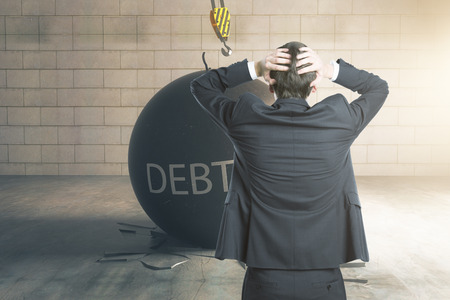
What is Bankruptcy?
If you’re excessively drowning in debt, you can declare bankruptcy. A court proceeding decides whether the person or the business is able to pay their bills any further. There will be a judge and a court trustee who will scrutinize the liabilities and assets of the debtor. The United States Trustee appoints this court trustee who is an officer of the Department of Justice in order to represent the debtor’s estate in this bankruptcy proceeding. If the court comes to the conclusion that the debtor doesn’t have to pay the bills then they become legally free of debts.
Types of Bankruptcies you should be aware of:
Personal Bankruptcies
In 2019, Chapter 7 was the most common choice resulting in 483,988 cases in total. This is ideal for those who have low income and assets. After the court judgment, debtors can keep their “exempt” properties such as their home, the car that is used for work, work equipment, pensions, Social Security checks, veteran’s benefits, welfare and retirement savings and the “Non-exempt property” such as cash, bank accounts, coin or stamp collections, stock investments, a second car or second home will be sold to pay a part of their debt.
However, these property exemptions can differ state to state. The aforementioned “Non-exempt property” are liquidated and sold by a bankruptcy trustee who was appointed by the court. The trustee will be paid and administrative fees will be covered by the proceedings. If there is any money left it will be used to repay the creditors.
If you file for Chapter 7 bankruptcy, you will have to go through a U.S. Bankruptcy Court’s Chapter 7 means test where your debts are restructured and examined to see whether you can pay a part of your debt. If your income over the last 6 months is less than the respective state’s median income, you are eligible for Chapter 7.
The other way to qualify for Chapter 7 filing is to have the second means test. Here, your essential expenses such as rent/mortgage, medical expenses, food, clothing will be measured with your income. If your disposable income is still low then you have a chance to qualify.
The bankruptcy judge will decide whether you can file for Chapter 7 regarding your income status and the capability of paying the debts gradually.
Chapter 13 Bankruptcy
Chapter 13 is there for people whose income is too high and therefore not qualified for Chapter 7 or the ones who would like to keep their properties. Chapter 13 allows the debtors to repay a portion of their debt while the rest is forgiven.
As of 2020, a person’s unsecured debt could not go over $394,725 and the secured debts should stay under $1.184 million in order to qualify for Chapter 13. However, the figures are changed periodically as you should inquire about an update from a bankruptcy lawyer.
A complete 3-5 year payment plan should be designed by the debtor and the rest of the debt can be erased.
Unfortunately, most people fail to complete this step.
Other types of Bankruptcies
- Chapter 9
Chapter 9 only applies to cities and towns. This mainly happens because people move out of the cities to find work from somewhere else because of the lack of industries. Chapter 9 protects the respective municipalities while the city develops a plan to face the debts. Chapter 9 filings are uncommon and there were just 4 of them in 2018.
- Chapter 11
Chapter 11 or “reorganization bankruptcy” is designed for businesses and gives them a chance to keep running their businesses during bankruptcy proceedings. Large corporations such as General Motors, Circuit City, and United Airlines are using this even though Chapter 11 can be used by any size business.
- Chapter 12
Chapter 12 offers a chance to “family farms” and “family fishermen” to build a 5-year plan to repay a part or the complete debt. Individuals, partnerships, or corporations should have debt less than $1.87 million for fishermen and $4.03 million for farmers, to be eligible for Chapter 12.
- Chapter 15
Chapter 15 is for debtors who have assets and debts in both the U.S. and in another country. These are also called cross-border insolvency cases.
When and how to declare bankruptcy?
You should re-evaluate your situation and decide if you can pay the debts in 5 years. If you cannot, it may be advisable to declare bankruptcy. Likewise, you should follow procedural steps before filing for bankruptcy whether you are an individual or an organization.
- Provide an in-depth understanding of your situation to the court or anyone who is involved in your case by compiling your financial records such as your debts, income, assets, and expenses.
- You should take Bankruptcy counseling from a counselor who is listed and approved on the U.S. Courts website, within 180 days prior to filing for bankruptcy because this assures the court that you have looked through all the other possibilities before filing. Most counseling can be done over the phone and online. If you haven’t got the completion certificate on your paperwork your filing will be denied.
- Hire a bankruptcy lawyer and be prepared for your bankruptcy case because you wouldn’t know everything about your proceeding’s procedures which will affect your results.
- Meeting with the creditors along with the court trustee can give both parties some insight.
Key points to remember about Bankruptcy
- When you file for bankruptcy, your credit score is affected and Chapter 7 stays on your credit report for 10 years and Chapter 13 will be there for 7 years.
- You could face problems when finding a job or acquiring new lines of credit if there is a bankruptcy discharge.
- Having at least $15,000 debt could be beneficial for taking the full advantage of bankruptcy.
- Federal student loans, Alimony and child support, debts incurred in the six months before filing bankruptcy, Debt that came after bankruptcy is filed, Taxes, fraudulently obtained loans, Debts that came from personal injury while driving intoxicated will not have a discharge.
- The ones who co-signed your debts are not protected by the bankruptcy, and they may still have to pay full or half of the debt.
Other options you can choose
- You can opt for debt management that will reduce your interest on credit card debt. This service that is provided by nonprofit credit counseling agencies will show you an affordable monthly payment plan to pay those off.
- Debt consolidation can combine all the loans and support you make timely payments.
- Debt settlement is a way of negotiating with the creditors to see if they can decrease your balance.
Attempt to thoroughly educate yourself prior to plunging into a bankruptcy case – you may have other options available. Call today for a free consultation.

